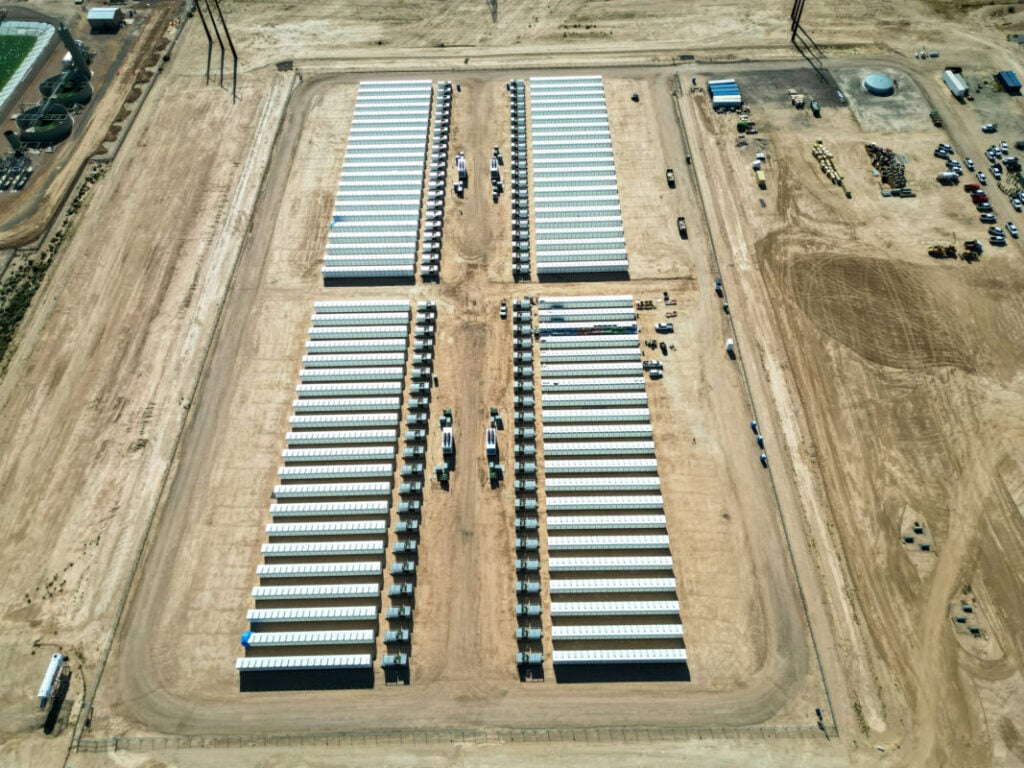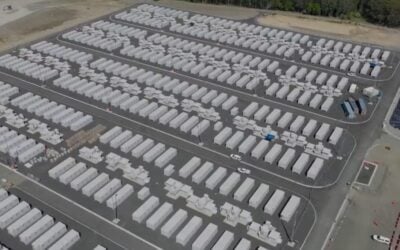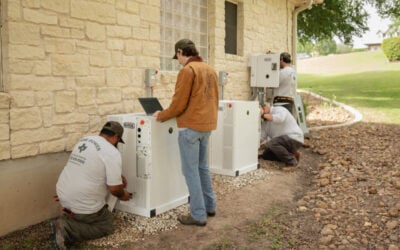
Matthew Biss looks at how energy storage companies are planning and mitigating tariff and tax credit risks within an uncertain policy landscape.
While the 90-day pause in US-China tariffs offers the energy storage industry somewhat of a reprieve, untying complex supply chains from China to avoid future tariffs is a complex process that will likely take most companies much longer than three months to fully achieve.
With the so-called “One, Big, Beautiful Bill” threatening to take away tax credits previously introduced as part of the Inflation Reduction Act (IRA), that impetus has become both more urgent and much more complicated.
Following on from predictions of a rush on BESS and potential stockpiling, some companies have begun to report on the impacts to business during the first quarter of 2025, with some affected much more than others.
Try Premium for just $1
- Full premium access for the first month at only $1
- Converts to an annual rate after 30 days unless cancelled
- Cancel anytime during the trial period
Premium Benefits
- Expert industry analysis and interviews
- Digital access to PV Tech Power journal
- Exclusive event discounts
Or get the full Premium subscription right away
Or continue reading this article for free
Longroad Energy to purchase 400MW of BESS during pause
This week, as part of its quarterly financial results release, New Zealand-headquartered investment firm Infratil revealed the performance of Boston-based developer Longroad Energy, in which it holds a 37.2% stake.
Infratil CEO Jason Boyes revealed on a call to investors that Longroad was “well-positioned to navigate evolving policy settings,” with 1.8GW worth of projects already “safe harboured” and scheduled to come online before the end of 2028.
To remain eligible for investment tax credits (ITCs), the “Big Beautiful Bill” requires projects to be operational by the end of 2028, and for construction to commence within 60 days of the bill being passed into law. However, with the bill still open to modifications during its passage through the Senate, these requirements could change.
“We’re building optionality into the pipeline and assessing what projects could potentially be brought forward,” said Boyes, in reference to an additional 3GW of projects currently under assessment for accelerated development ahead of the 2028 deadline.
Aligning with the fears of some analysts, who warned of a buying rush on energy storage units, Infratil stated Longroad intended to use the 90-day pause to purchase 400MW of BESS for projects to be deployed next year. Unfortunately, according to Infratil, Longroad’s energy storage segment “still relies heavily on Chinese imports.”
The recent release from Infratil also revealed that Longroad needs an additional 500MW for projects due online in 2027 that it has yet to procure, which “may require higher [PPA] pricing to preserve project economics.”
Despite the uncertainty surrounding tariffs and tax credits, Boyes said that Infratil and Longroad remained “positive about underlying fundamentals of the US power market”.
Since being acquired by Infratil, New Zealand Superannuation Fund and MEAG in 2022, Longroad has built its solar, wind and storage portfolio to a claimed 30GW across 20 states.
Energy Vault insulated from tariffs
As part of its quarterly financial release, Energy Vault revealed it had taken recent steps to insulate itself from potentially the highest future import tariffs after securing a recent 2GWh BESS deal from a Tier-1 supplier outside of China.
Although the supplier wasn’t named, the company said the order would be used for “deliveries in 2026 to meet US customer needs.”
Energy Vault is perhaps best known as the company behind a proprietary gravity-based energy storage technology. It then launched a turnkey BESS integration business and has since begun developing and owning projects.
During a recent call to investors, Energy Vault CEO Robert Piconi explained that prior to the pause, the company had adopted a “wait-and-see” approach before taking any additional bookings. As with Longroad, executives at Energy Vault were encouraged by the pause and are exploring avenues to accelerate BESS deliveries.
NextEra and AES: Diversify and domesticate
On a recent call for investors, President and CEO of NextEra Energy, John Ketchum, revealed that despite past events forcing some companies to rethink supply chains for the very first time, it had taken a more proactive approach during the past three years to best manage any disruption.
“Our team had the foresight last year to secure arrangements to purchase US-made batteries for a significant portion of our backlog, with the remainder of the batteries sourced outside of China where tariff exposure is contractually allocated to the supplier”, explained Ketchum.
As reported by Energy-Storage.news, NextEra Energy signed a multi-project battery supply deal with South Korea’s Samsung. This was confirmed in March this year after some media outlets had previously reported the two parties negotiating a huge deal covering 6.3GWh of BESS.
Through diversification and domestication of its supply chain, Ketchum said its dedicated development subsidiary, NextEra Energy Resources (NEER), had less than US$150 million in tariff exposure between now and 2028, out of an expected capital spend exceeding US$75 billion.
“That’s less than 0.2% of potential impact to our capital spend before exercising contractual trade measure protections in our contracts with customers,” stated Ketchum.
By the end of 2027, NEER hopes to have grown its operational solar and storage portfolio to a staggering 70GW across North America.
As also revealed in its most recent financial results, the AES Corporation has mirrored Nextera’s strategy by contracting for approximately 80% of its 2026 and 2027 battery needs from US or South Korean suppliers.
The company also revealed it had already imported all the batteries it needed for any projects that were due to come online this year.
Additionally, AES said it was “well advanced in contracting US domestically manufactured battery modules to support the remainder of our US energy storage growth through 2027.”





